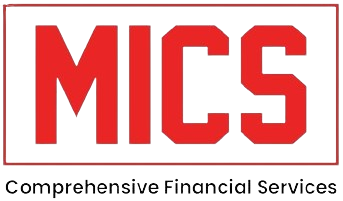$350 Million+ Funds Arranged. We provide debt beyond traditional sources.
Merger and Acquisitions can be a pivoting point for your business, but it’s unchartered territory. We can help you stay on course to drive strategic value from your pursuits.

A process that bridges the gap between the time when a company’s money is set to run out and when it can expect to receive an infusion of funds, later on, is called bridge financing. Bridge financing is used to fulfil a company’s short-term working capital needs.
Working capital financing is a service designed to boost the working capital available to a business. when a business borrows money to cover small expenses such as day-to-day operations and payroll, rather than the purchase of equipment or real estate.


Trade finance is the financing of international trade flows. It acts as a third party to mitigate, or reduce, the risks involved in an international trade transaction.MIC provides a wide range of trade financing services and solutions to all your import and export requirements.
Recourse factoring means that the company must buy back any invoices that the factoring company is unable to collect payment on. The company will ultimately be responsible for any non-payment. Non-recourse factoring means the factoring in which the company assumes the risk of non-payment by the customers.


A project term loan is a service designed for long-term source of finance and a credit appraisal for a company extended by financial institutions or banks for a period of more than 5 years to a maximum of around 10 years.
Lease financing is a type of financing of the lease in which a finance company is typically the legal owner of the asset for the duration of the lease, while the lessee not only has operating control over the asset but also some share of the economic risks and returns from the change in the valuation of the underlying asset.


A short-term loan or a revolving line of credit that is acquired by a company so it can purchase products to sell at a later date is referred to as inventory financing.
A contract wherein the owner, called the Lessor, permits the user, called the Lessee, to use an asset for a particular period that is shorter than the economic life of the asset without any transfer of ownership rights, is called an Operating lease.


Reserve factoring commonly referred to as supply chain financing is a buyer-led Fintech solution in which a financial institution finances invoices for suppliers at discounted rates and offers short-term credit against the invoice. We advise our clients about the smart SCF solution.
Far far away, behind the word mountains, far from the countries Vokalia and Consonantia, there live the blind texts. Separated they live in Bookmar.


We provide complete advisory services for raising debt funding via issuances of SUKUK (Islamic bonds). SUKUK is a sharia-compliant bond-like instrument used in Islamic finance. It involves direct asset ownership interest. Bond Advisory is an indirect interest-bearing debt obligation.
Back-to-back LCs essentially substitute the two issuing banks’ credit to the buyer’s and intermediary’s and help facilitate trade between parties who are dealing from great distances and who may not otherwise be able to verify one another’s credit.


Contract financing is a type of payment solution where the contractor sells an invoice to a contract financing company to receive an advance up to 90% of the invoice amount before the project begins. It provides the company cash flow which can help finance project-related costs, such as inventory and equipment.
We help in Discounting BOEs, PNs, etc. This is a trade-related activity in which you can sell your unpaid invoices to us. Receive customised solutions that match your business needs.


Shipping finance is a transaction involving a lender providing funding to a borrower for the purchase of a vessel (which is either a new-build vessel under construction or a vessel that already exists and which is being purchased by the borrower as a second-hand vessel) or to refinance existing indebtedness already in place in respect of a vessel.
We advise clients in debt-raising and financial restructuring matters and have been successful in raising debt in many difficult situations. Our team of experts is experienced in raising debt in the simplest way possible with minimal formalities.


Private equity is a form of private financing, in which funds and investors directly invest in companies or engage in buyouts of such companies away from the public markets. Our private equity solutions clear the way to help you stay focused on what’s important—raising equity, managing your funds and driving growth.
Through Strategic planning we help the organisation to define its direction, long-term goals, and we help with the process And plan for achieving them and getting the results after the execution.

Yes, depending on the credit story and sector. In such cases, we often tap unsecured lending programs, cash-flow based facilities, and relationship-driven private credit channels in the region.
No. While we have deep relationships with GCC banks, we also engage with global lenders, private credit funds, ECAs, and Shariah-compliant financing partners.
For well-prepared borrowers, facilities can be secured in 6–10 weeks. Complex cross-border or project finance mandates may extend beyond this.
Yes. Negotiating interest spreads, covenants, security packages, and repayment flexibility is central to our mandate.
Absolutely. We regularly execute refinancing and restructuring assignments to lower cost of capital, improve tenor, or release security.
Yes, we structure Murabaha, Ijara, and Sukuk-based financing in line with client requirements.
Yes, particularly for industrial, infrastructure, and strategic procurement mandates where ECA-backed terms are advantageous.
Yes — from confidential pre-market positioning, valuation, and investor outreach to transaction structuring and closing.
Yes. We are retained by sovereign funds, conglomerates, and UHNW family offices to identify, approach, and negotiate acquisitions.
Beyond traditional valuation methods, we factor in sector-specific drivers, regulatory landscapes, and regional premium/discount considerations.
Typically, 6–12 months. Transactions involving regulatory approvals or cross-border integration may require longer.
All engagements are under strict NDA, with curated and tiered information flow to qualified parties only.
Yes — we have cultivated investor access spanning North America, Europe, and Asia, in addition to regional pools.
Selectively, for transactions where operational alignment is critical to investment returns.
